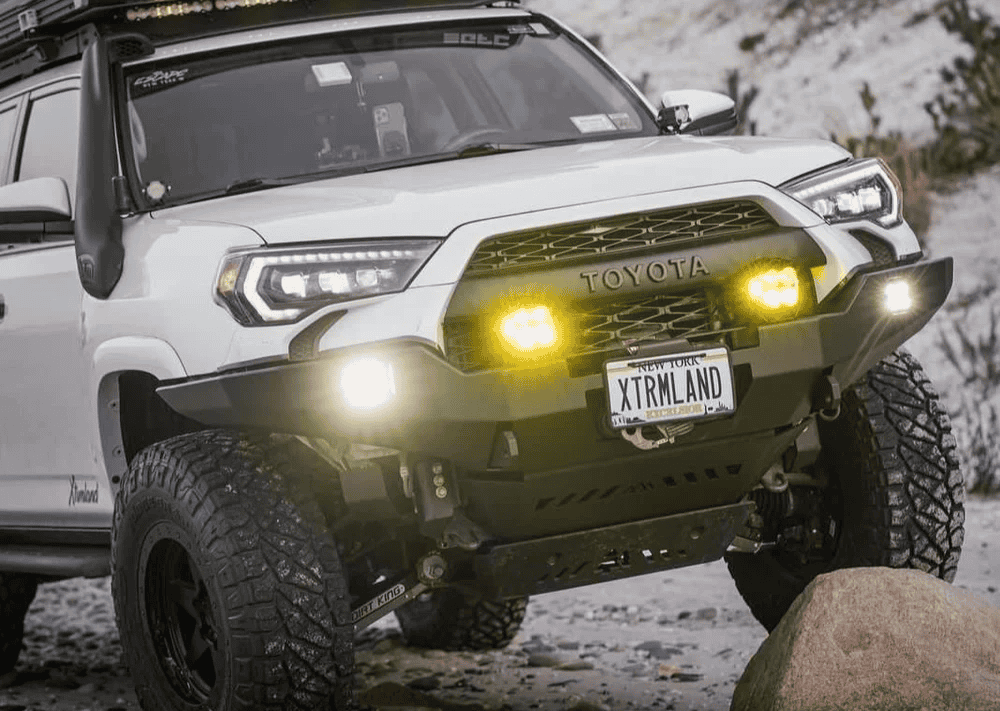Overland Vehicles

When people talk about the best winter campers, what they really mean is a rig that holds temperature, keeps water flowing, and moves confidently on snow. Insulation comes first. Closed cell foam and thoughtfully sealed floors, walls, and ceilings reduce thermal bridging, which is the sneaky path that steals heat through metal structure. Dual pane windows preserve interior warmth and cut condensation. A tight vapor barrier keeps moisture out of the envelope, protecting both comfort and the bones of the build.
Heating is the second pillar. Diesel fired air heaters shine for efficiency and altitude performance, while hydronic systems warm air and water from a shared burner. Electric heat is cozy but power hungry, so it works best in short bursts with a strong lithium bank and alternator or ample solar collection. Smart air routing and return paths prevent stratification so toes stay as warm as shoulders.
Plumbing needs winter armor. Keep tanks and lines inside the heated envelope or add heat pads with thermostats. Use PEX for durability, insulate vulnerable runs, and add low point drains so a cold snap does not turn a faucet into a frozen plug. Finally, ventilation matters even in winter. Controlled fresh air plus moisture management prevents fogged glass and damp bedding.
Rigs that excel in deep winter pair continuous insulation with minimal metal exposure inside the living space. Pay attention to door frames, window surrounds, and roof ribs. Thermal curtains for cab areas in truck campers or vans can save a surprising amount of energy overnight. Even small touches like insulated window covers and a rug over the floor can make the cabin feel warmer.
Diesel air heaters sip fuel and produce dry heat that fights condensation. Hydronic units add hot water and can feed radiant floors or fan coils. Many offroad truck campers carry both a primary heater and a backup, such as a compact catalytic unit, to cover rare failures on remote trips. Altitude kits and clean intakes keep burn efficiency strong on mountain passes.
Winter friendly plumbing starts with interior tanks and accessible filters. Heat tape on exterior lines should run through a thermostat, not a simple on switch, to protect your battery capacity. An auxiliary recirculation loop can keep water moving on extreme nights, and a blowout port lets you winterize quickly if you plan a long cold park.
Offroad truck campers earn their reputation with clearance, approach angles, and traction that let you reach trailheads after a storm. A lighter camper shell on a robust chassis provides a stable footprint and a compact thermal mass that heats quickly. Tire choice is huge. True winter rated all terrains with the three peak mountain snowflake symbol add bite on packed snow, while chains are the ace card for steep, icy climbs.
Suspension tuning keeps the camper level and predictable on rutted, frozen roads. Shocks with cold resistant fluid maintain damping, while airbags or progressive leaf packs support the added weight of water and gear. Lighting and recovery gear matter on short winter days, and a reliable onboard air system turns tire pressure into a traction tool.
Some of the best winter campers began life as simple shells and were refined with layered insulation, upgraded heat, and smart storage that does not block airflow. That progression is often more cost effective than purchasing a luxury platform when the priority is durable winter function.
A frequent question in the snow season is the EarthRoamer rental price. Because these luxury expedition rigs ride on heavy duty chassis with premium systems, nightly rates commonly land in the four figures, often around 1000 to 2000 dollars per night plus insurance, cleaning, and mileage. Availability, season, and location influence the final number. For many travelers, that can be perfect for a bucket list trip when time is short.
There are alternatives that deliver outstanding winter performance without luxury pricing. Well equipped offroad truck campers with quality insulation, a diesel heater, and a reliable lithium system often cost a fraction to rent, or can be owned and maintained for repeated winter trips. Even a modest shell can transform into a capable snow traveler with upgrades to heat, power, and water protection.
If you prefer a purpose built rig you can take out all season, consider a custom cold weather upfit that matches your terrain and crew size. You can Explore overland rigs to see how a capable platform starts. For focused work on heat, power, suspension, and storage, review our custom overland upfit approach to building durable systems that survive repeated freeze thaw cycles. If you are weighing options, this page explains our process and standards: why choose OZK Customs.
A smart winter build plan usually includes:
When these pieces are in place, you get a quiet cabin, dry gear, hot drinks, and a simple startup routine on single digit mornings.
Closing thought for snow season travelers: pick the platform that matches your style. If the goal is a once in a lifetime luxury run, the EarthRoamer rental price might make sense for the experience. If you want repeatable winter weekends, an offroad truck camper or a tailored overland build can deliver equal confidence with a simpler footprint.
We design and install winter ready systems for truck campers, vans, and overland platforms from our shop in Fayetteville Arkansas. Bring us your route, your crew, and your wish list. We will translate that into insulation, heat, power, and suspension that make cold trips calm and enjoyable.
Want a winter ready build that starts on the first turn and stays warm without draining your battery bank? OZK Customs designs and installs cold weather systems, from insulation and diesel heat to lithium power and suspension tuned for snow. Share your trip dates and must‑haves, and we will spec a package that fits your route and your budget.
ADDRESS:
6159 E Huntsville Rd, Fayetteville, AR 72701
PHONE:
(479) 326-9200
EMAIL:
info@ozkvans.com